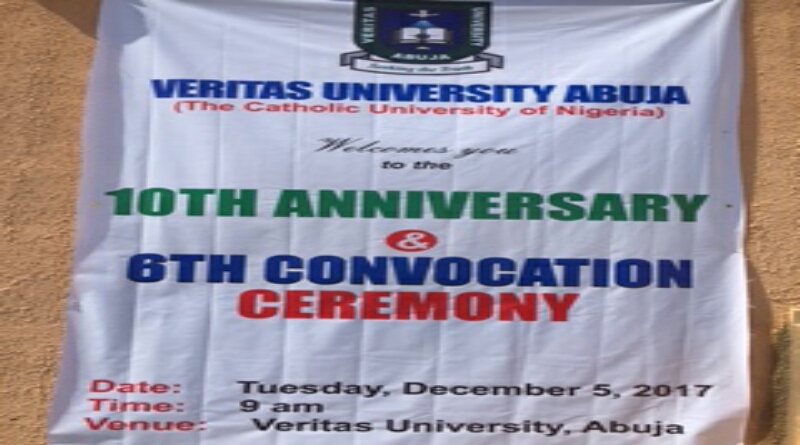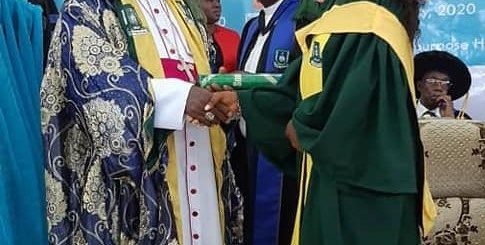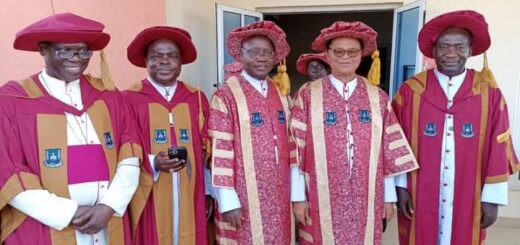AFRICA AND ITS CONTEMPORARY CHALLENGES
AFRICA AND ITS CONTEMPORARY CHALLENGES
A contribution by Archbishop Ignatius A. Kaigama, to the panel discussion on : “The Challenges of Global Africa” during the 30th Anniversary of the International Conference/Prayer for Peace in Assisi, 19th September, 2016
INTRODUCTION:
THINKING POSITIVELY ABOUT AFRICA
While, in speaking about Africa and its contemporary challenges, some people would perhaps expect that I should begin by delving into its litany of social, economic and political woes or stories of man-made and natural disasters, I prefer to start with the fact that Africa, despite its multidimensional challenges, has so much to contribute to the new world order. Africa is progressing from merely being a geographical entity of disaster, a territory for economic exploitation by commercial companies to a fertile ground for ideological implantation, thirsting to take its rightful place in the world.
Among some of the recent positive assertions about Africa, I notably single out that of Pope Emeritus Benedict XVI, who,during the 2009 Synod of Bishops for Africa, in his homily at the opening Mass referred to Africa as “an immense spiritual ‘lung,’ for a humanity that appears to be in a crisis of faith and hope.” Later, during his midday Angelus address, Pope Benedict also praised the “extraordinary human wealth” of Africa. In her book, “Africa – The Bright Side of the Earth”, Maria Pereira dos Santos wrote: “I photographed in Mozambique, Nigeria, Namibia, South Africa, Swaziland, Tanzania and Malawi in the past 5 years and there is nowhere else on earth where I’ve found so much joy.” Because of the paleoanthropological site, about 50 kilometres northwest of Johannesburg, South Africa in the Gauteng Province Africa is known as the cradle of humankind. The site was declared by the UNESCO in 1999 as a World Heritage Site.
African Christians happily identify with the story of the infant Jesus who, with the mother and foster father Joseph, had to escape the murderous threat of Herod and took refuge in Egypt, where Jesus was warmly welcomed and magnanimously hosted on African soil. Even though Africa is known for its economic disadvantage, it is a land of generosity and yet-to-be-fully-tapped prosperity. Given the right conditions, (i.e. genuine technological support and collaboration by the international community), Africa will play a prominent and significant role in our globalized world of politics, economics and science, in addition to its fame of where God is honored as part of life.
SOCIAL VALUES: AFRICA’S GIFT TO THE WORLD
What can Africa, regarded by some as the “beggar of the world”, give to the world? Perhaps for now Africa cannot offer multi billion Dollar investments or much fruits of scientific innovations. What she can offer in abundance, as her major export commodity to the rest of the world,
however, are her cherished cultural values: e.g. the extended family system that serves as a social insurance scheme, respect for elders, the sacredness of life, the sanctity of marriage, endurance in suffering hardship (suffering and smiling), and communal life, warm-hearted hospitality, as against individualism, etc.
One of Africa’s outstanding treasures, the best of Africa’s valuable and sacred assets is the family. Little wonder that the recent meetings of African Bishops focused mainly on the family. The Regional Episcopal Conference of West Africa (RECOWA) met in Ghana in February to discuss the family, development and evangelization. A meeting in Angola of the Symposium of Episcopal Conferences of Africa and Madagascar (SECAM) also centered on “The Family in Africa, Yesterday, Today and Tomorrow: in the Light of the Gospel”.
It was observed at both meetings that modern, social forces seem to be gradually assaulting or destabilizing the family which is the foundation and/ or pillar of African life. Unfortunately, the family, the institution that defines who or what an African is, is becoming the first casualty among the collapsing cultural values in Africa. External cultures swept across Africa with lightening speed on account of the modern means of social communication (TV, internet, Facebook, email, Twitter, Instagram, etc). As a result of this many of Africa’s cultural heritage or values are in danger of being lost or subordinated to so-called new civilizations. Some African languages are in danger of being lost as many younger Africans hardly speak them and even some healthy traditions are being sacrificed for the so-called “modern” ones. Communal life is degenerating and being replaced by high level individualism; respect for elders seems not to matter again among many African youths while the notion of unbridled freedom has given birth to unprecedented moral permissiveness and drug culture. These are sources of concern as Africa struggles to be an active global player. The challenge is how Africa can remain relevant in a global relationship and at the same time remain genuinely African without sacrificing her cherished positive cultural values.
SOME CHALLENGES OF THE AFRICAN CONTINENT
Africa is the second biggest continent in the world. The independence of most of the constituent countries of Africa in the 1960s was welcomed and celebrated with a heightened anticipation and hope of phenomenal growth and development because Africa was accorded the opportunity to chart a new course that would improve the livelihood of her people. These hopes and aspirations of hers have either been ruined or are slow-paced, notwithstanding the rich concentration of human and natural resources. Issues such as Corruption, political instability, youth unemployment, security challenges, brain drain, food insecurity, ethnic chauvinism, drought, coup detats, diseases (malaria, HIV/AIDS, polio, tuberculosis, Ebola) have played no small part in under-developing Africa.
Poor Infrastructure is a contributory factor to the slow economic growth in the continent; the deplorable state of most of our roads, power outages, poor transport and communication systems are counter-productive to the optimal utilization of our natural endowments. Rural entrepreneurship and local production are not stimulated by infrastructural development such as transportation and energy. Peasant farmers are unable to convey and preserve their huge farm produce to urban areas basically owing to poor road networks and lack of storage facilities.
Some countries in the continent are experiencing either internal or external security challenges. Militants, insurgents and terrorist groups under various names are largely responsible for the insecurity in Africa today as is evident in the persistent unrest and violence in Somalia, DRC, Sudan, South Sudan, Chad, Zimbabwe, Central African Republic, Kenya, Nigeria etc. Already, Boko Haram and Al Shabaab have been co-opted into a lager terrorist organization. Yonah Alexander captured this adequately when he noted that the “growing concern for security interests are the increasing links and flow of recruits between regional extremists and the so called ‘Islamic State’ (also known as ISIS and ISIL) in Syria and Iraq, as well as various Al-Qaeda affiliates and allies across the region.” This will pave way for their infiltration into other continents and this will, unarguably, become a global challenge with far reaching devastating consequences.
Most times when asked to explain why Africa is backward economically, many cite reasons of slavery, colonialism, apartheid, etc. But I often hasten to point out that these have stopped so many decades ago (even if they reappear under different forms today). Rather than continue to blame the past, emphasis should be on the activities of many of our directionless and corrupt leaders. To steer the tide of development in any society there must be a purposeful leadership that will provide the needed direction and guide. Unfortunately, the African leadership class has not been able to get it right. The political class is affected by parochial sentiments and greed, lack of political will and vision. With political conflicts endlessly ravaging countries and hampering social development in the process, the continent needs positive intervention to bring about the establishment of the rule of law and democratic processes. Africa has experienced coup detats, leaders’ wasteful and reckless financial expenditure, brutal regimes/dictatorship etc. Even if these are a hangover from pre independent Africa, Africans should have by now been able to surmount them and moved on. Travel within the continent is so difficult. For instance, I recently, spent over 18 hours to go to Angola from Nigeria. The journey which should have taken me only three hours took me first to Accra in Ghana, then to Dubai before descending back to Africa and passing over Nigeria and Ghana to Angola! These are issues that “afritriotic” leaders and business men and women or even the African Union could tackle and facilitate to bring Africans closer to fellow Africans, and by so doing fostering continental integration. The absence of such services has nothing to do with the social injury of our colonial past. Unfortunately, most leaders who should address these see politics or leadership as the unfettered access to public funds. They rob the poor blind and deny them basic human dignity, while the wallow in incredible luxury.
A HOPEFUL AFRICA
In Spite of the bad leadership and poor governance, Africa is on the verge of recovery as some countries are rapidly restructuring their economy, addressing the causes of age-long crises and prioritizing the fight against corruption. Leaders today are being asked difficult and tough questions when they don’t provide the dividends of democracy.
If Africa must take her place in the comity of nations, the electorate must have the audacity to elect only leaders who serve the common good and not the power hungry ones who once in power manipulate their way through fraudulent elections over and over and want to remain and perpetuate themselves in power until death do us part.
WE MUST NOT ALLOW RELIGIOUS EXTREMISM TO DESTROY AFRICA
It is not in doubt that the two dominant religions in Africa, Islam and Christianity were introduced after the adherents of the two religions had already fought several wars. They came to Africa as wounded enemies and their battle for supremacy has not ended up to now. This hostile disposition has polarized them and created the fertile ground for unhealthy rivalry, feeling of superiority, competition for numerical growth and territorial expansion. Instead of cooperating to face issues of social development by living out concretely the life of love of God and neighbour, adherents are more concerned about how many adherents they have in their fold, how much territory they have acquired and what strategies they should use to undermine, cripple and paralyze the growth of the other religion perceived as an enemy to be dealt with. Even within the the religions themselves, factions emerge, fighting themselves to the point of death! Religion, in some cases, has been used as a political tool or a weapon of violence and intimidation.
This is perhaps what is responsible today for the uneasy relationship between the two dominant religions in Nigeria. The attitude of mutual hostility by the two umbrella bodies, the Christian Association of Nigeria (CAN) and the Jama’atu Nazril Islam (JNI) sometimes over trivial or mundane matters is a typical example. A student’s quarrel in a school could become a reason for the whole community to get involved in a deadly conflict; an argument in the market square could degenerate into a serious crisis with many getting killed. It is not new in Nigeria that some persons have been brutally killed because of alleged blasphemy. The mere thought of whether the wearing of the hijab could be suspended in view of the fact that suicide bombers could hide under them to cause havoc brought about stiff statements of resistance from different quarters including highly placed persons. The recent visit of the American Secretary of State, John Kerry resulted in so much hostile utterances by CAN leadership who accused Secretary Kerry of collaborating with Muslims to islamize Nigeria because he visited the Sultan and did not visit any Christian leader.
In Nigeria a lot of energy is expended for no good cause over religious issues that could be sorted out through dialogue. Christians and Muslims spend so much time trying to celebrate and publicize the conversion of one person from one faith to another and in some cases the person converting could be threatened with death! The sad thing is that both Christians and Muslims avoid the more serious issues like personal purity and sanctity, disturbing social issues like corruption, hunger, disease, uneducated street children, criminality, drugs among the youths, immorality, and lack of social infrastructure. This trend is the reason why many Christians in Nigeria are upset that the appointments of President Buhari so far seem to favour the north and Muslims and so they have accused him of pursuing an Islamization agenda.
RECOMMENDATIONS
Although there is no one size-fits- all approach to these challenges due to the distinctiveness of each country in the continent, the following recommendations might assist in mapping measures that will, if not decimate, curb and curtail them.
The United Nations Secretary General, Ban Ki Moon, on 24th October, 2009 at the 36th Ordinary Session of the ECOWAS Authority of Heads of State and Government held in Abuja, Nigeria, rightly recommended that transparent and peaceful elections are a panacea to political stability in Africa. Correspondingly, respect for the constitutional provisions as they pertain to the tenure of political leaders and equitable distribution of wealth is an antidote.
In Africa, we have enough for our needs and not for our greed. Therefore, government, at all levels, must wage war against corruption which should be complemented by the West by not providing a safe haven for ill-gotten wealth and repatriating same to Africa. A corruption-free Africa is guaranteed if and only when our leaders use public funds responsibly and not for personal aggrandizement.
Our education system must be restructured in such a way that it reflects and corresponds to the prevailing economic realities of the different countries in the African continent. The recent step taken by the government of Nigeria that polytechnics should strictly be preoccupied with technical courses is a step in the right direction. Thus, students will be provided with the requisite education cum skills that will match with the existential needs of their localities conducive to self-employment. It is incumbent on the government to grant soft loans to those taking such ventures.
It is gravely worrisome that some African countries, due to either non-availability of essential infrastructure or their inefficiency, export crude resources and import them as refined products. Hence, governments must make the development of physical structure a priority; uninterrupted power supply, good transport and communication systems should be provided and the existing ones should be improved on and efficiently maintained. This will facilitate unrestricted flow of goods from farms to markets and boost intra and inter-continental commercial activities and ties.
Agriculture, which is the main profession of rural dwellers, if genuinely encouraged could be an effective means of combating and eradicating poverty in Africa.
The West must work in partnership with Africa in combating corruption, militancy, insurgency and terrorism through the provision of technical support and relevant logistics.
CONCLUSION
There is no legitimate justification for the underdevelopment of Africa. Africa should not be poor. Africa’s present predicament is the result of some of our leaders lack of vision and political will to properly manage our resources. This has been complicated by the use, by some bigots, of religion as a tool for violence and destruction of lives and property at the slightest provocation or sometimes no provocation instead of using religion as a way of life to promote spiritual growth, to earn eternal life and to achieve social development, peace and happiness among fellow Africans and indeed among all human beings irrespective of creed, colour or geographical location.




